Maintaining mindfulness and wellbeing
2020-03-04
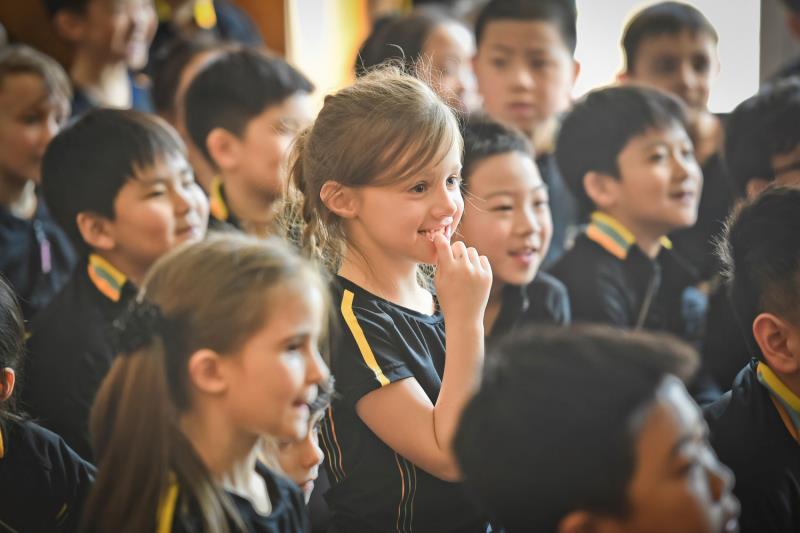 While adults are not immune to the stresses of an upset to their everyday lives – such as major changes in setting, routine and constant witnessing of dramatic reports presented by the media – we have an ability to rationalise these in a way that children cannot.
While adults are not immune to the stresses of an upset to their everyday lives – such as major changes in setting, routine and constant witnessing of dramatic reports presented by the media – we have an ability to rationalise these in a way that children cannot.
 Jo Evans
Director of Wellbeing
It is fair to say that for some, especially our youngest pupils, the impact that the COVID-19 outbreak has had on their lives will be one of the biggest challenges that they have had to face so far. How we help them manage this time is important, not just in terms of their learning, but also in terms of enabling them to process and understand what is happening and how they feel about it.
Children (and adults) can experience a variety of reactions to stressful situations which can sometimes include:
Jo Evans
Director of Wellbeing
It is fair to say that for some, especially our youngest pupils, the impact that the COVID-19 outbreak has had on their lives will be one of the biggest challenges that they have had to face so far. How we help them manage this time is important, not just in terms of their learning, but also in terms of enabling them to process and understand what is happening and how they feel about it.
Children (and adults) can experience a variety of reactions to stressful situations which can sometimes include:
- Irritability
- Sleep-related problems
- Nightmares or bedwetting in younger children
- Aggression
- Withdrawal
- Separation anxiety
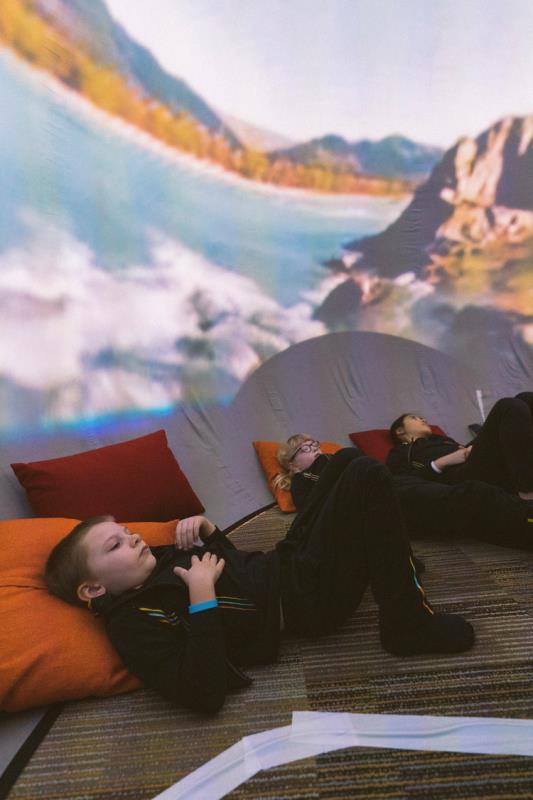 If you have the time, space and inclination, you might want to try and build some mindfulness and meditation time into your day. This is something we have been trialling at Wellington in a more dedicated manner during the final weeks of the previous term. With the helpful addition of the dome tent that pupils may have recognised already from their VR-based lessons in science, I’ve been able to run several mindfulness and meditation sessions for pupils as a means of easing the pressures of exams and their daily lives.
The dome serves two purposes – it creates a calming environment where it’s easy for pupils to block out the outside world, and the inner dome is the ideal surface to project scenes conducive to meditation, along with appropriate background music. Pupils’ firm favourites so far include outer space scenes, rugged mountain ranges and, of course, tropical island beaches! The response from pupils in these early sessions has been very encouraging and I’m looking forward to expanding them once we are back and settled into school life.
If you have the time, space and inclination, you might want to try and build some mindfulness and meditation time into your day. This is something we have been trialling at Wellington in a more dedicated manner during the final weeks of the previous term. With the helpful addition of the dome tent that pupils may have recognised already from their VR-based lessons in science, I’ve been able to run several mindfulness and meditation sessions for pupils as a means of easing the pressures of exams and their daily lives.
The dome serves two purposes – it creates a calming environment where it’s easy for pupils to block out the outside world, and the inner dome is the ideal surface to project scenes conducive to meditation, along with appropriate background music. Pupils’ firm favourites so far include outer space scenes, rugged mountain ranges and, of course, tropical island beaches! The response from pupils in these early sessions has been very encouraging and I’m looking forward to expanding them once we are back and settled into school life.
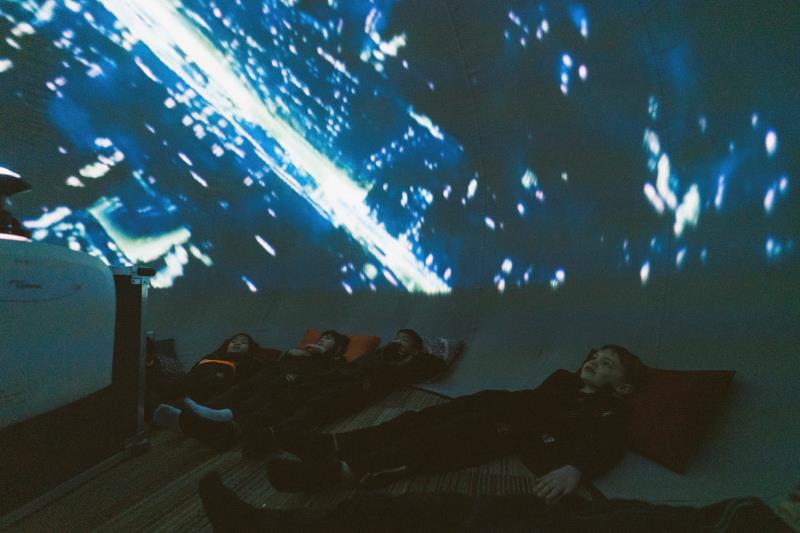 The good news is that, while helpful, you don’t need a dome to meditate successfully. Even if you’re not at home, it’s possible to create the right environment for self-reflection. Just bear the following pointers in mind and you may quickly find that even a very brief session can prove effective in enhancing your mood and reducing stress.
1: Try to create a quiet, calming space to meditate. Any background sounds or smells that you find calming are often helpful in creating the right environment.
2: Remove any sources of distraction. Principally we’re talking about your mobile phone! Generally speaking though, take any tech or distracting items out of the meditation space before you start. If time is limited and you need your phone to set an alarm, place it somewhere discreetly out of sight so it doesn’t distract you.
3: Don’t get too focused on the time. The idea is to not overcomplicate the process; you want to just take some quiet, calming time to yourself, that’s all. If you only have 10 minutes, that’s fine, if you want to linger for an hour or more, that’s equally fine. Focusing on ‘getting it right’ or ‘maximising your meditation time’ somewhat defeats the purpose of meditating. Just pick a time that suits you and relax into it.
The good news is that, while helpful, you don’t need a dome to meditate successfully. Even if you’re not at home, it’s possible to create the right environment for self-reflection. Just bear the following pointers in mind and you may quickly find that even a very brief session can prove effective in enhancing your mood and reducing stress.
1: Try to create a quiet, calming space to meditate. Any background sounds or smells that you find calming are often helpful in creating the right environment.
2: Remove any sources of distraction. Principally we’re talking about your mobile phone! Generally speaking though, take any tech or distracting items out of the meditation space before you start. If time is limited and you need your phone to set an alarm, place it somewhere discreetly out of sight so it doesn’t distract you.
3: Don’t get too focused on the time. The idea is to not overcomplicate the process; you want to just take some quiet, calming time to yourself, that’s all. If you only have 10 minutes, that’s fine, if you want to linger for an hour or more, that’s equally fine. Focusing on ‘getting it right’ or ‘maximising your meditation time’ somewhat defeats the purpose of meditating. Just pick a time that suits you and relax into it.
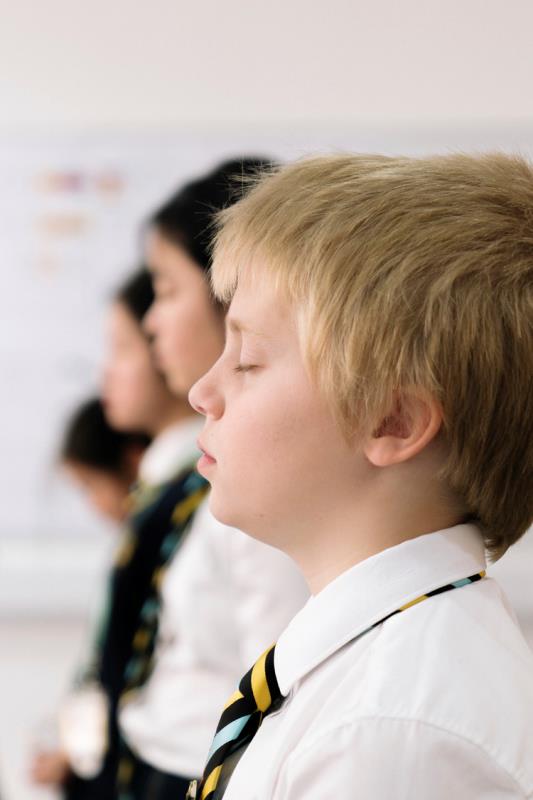 Hopefully these very simple ideas can help lead you to having some useful and relaxing sessions. Always remember that the objective is to simply take time to yourself for beneficial reflection. This can be used to direct your thoughts towards anything going on in your life that you wish to explore – important tasks or ambitions, worries and stresses, relationships and feelings, these things are all fertile grounds for a spot of quiet self-reflection.
Stay safe, stay calm and support one another during this trying time. I look forward to seeing you all back in school soon.
More relevant articles :
We are Wellington [Online] | Learning wherever we are
Discovering and exploring dance at Wellington
Insights | In the pursuit of happiness
Hopefully these very simple ideas can help lead you to having some useful and relaxing sessions. Always remember that the objective is to simply take time to yourself for beneficial reflection. This can be used to direct your thoughts towards anything going on in your life that you wish to explore – important tasks or ambitions, worries and stresses, relationships and feelings, these things are all fertile grounds for a spot of quiet self-reflection.
Stay safe, stay calm and support one another during this trying time. I look forward to seeing you all back in school soon.
More relevant articles :
We are Wellington [Online] | Learning wherever we are
Discovering and exploring dance at Wellington
Insights | In the pursuit of happiness
相关资讯

不要错过上海惠灵顿第二届舞蹈表演"Connecting eMotions."2025-04-17
诚邀您参加 5 月 8 日的 “Connecting eMotions”--我校的第二届舞蹈表演! 我们将隆重推出 “Connecting eMotions”,这是来自舞蹈资优学生项目和舞蹈辅助课程教学活动的学子们联袂献上的第二场表演。 今年的主题是颂扬连结的力量--既有情感上的,也有合作上的。我们的舞者通过团队协作共同创造出充满活力的作品,不仅视觉效果震撼,而且内涵丰富。在此过程中,他们培养了
点击阅读

立即报名惠灵顿2025 年Summer Festival: 超级英雄集结!2025-04-22
一年一度的Summer Festival即将于5月10日盛大开启!作为惠灵顿引以为傲的传统活动,这一天不仅是校园的欢乐盛会,更是我们凝聚社区精神、共庆校园文化的重要时刻。今年,我们以“超级英雄”为主题,诚邀每一位成员以创意装扮亮相,共同打造一场充满活力与热情的庆典。 不要错过!扫描海报上的二维码进行购票 欢乐嘉年华特别放送 想清凉一夏就来海王戏水乐园打水仗,爱热闹的一定要锁定正义联盟大舞台的精彩
点击阅读

多彩校园,卓越之路:惠灵顿奖学金获得者Melody的故事2025-03-07
音乐成为Melody一生的挚爱,这并不令人意外。早在四岁时,她就被父亲——一位技艺精湛的制琴师——手工制作小提琴的过程深深吸引。在与钢琴老师合奏小提琴的经历中,她逐渐领悟到五线谱上的每一个音符都蕴含着独特的个性。 这段视频讲述了一个关于坚持、奉献和追求卓越的故事。让我们一起聆听Melody的分享,探究为何每个声音都如此重要且独一无二。 对话Melody——惠灵顿艺术类奖学金获得者(音乐)“每一个
点击阅读










